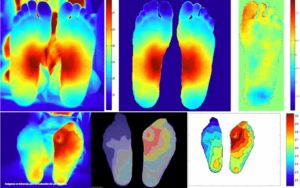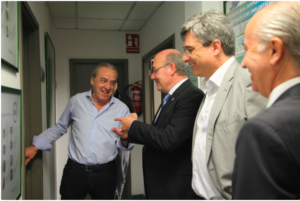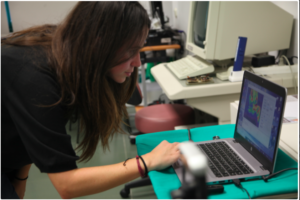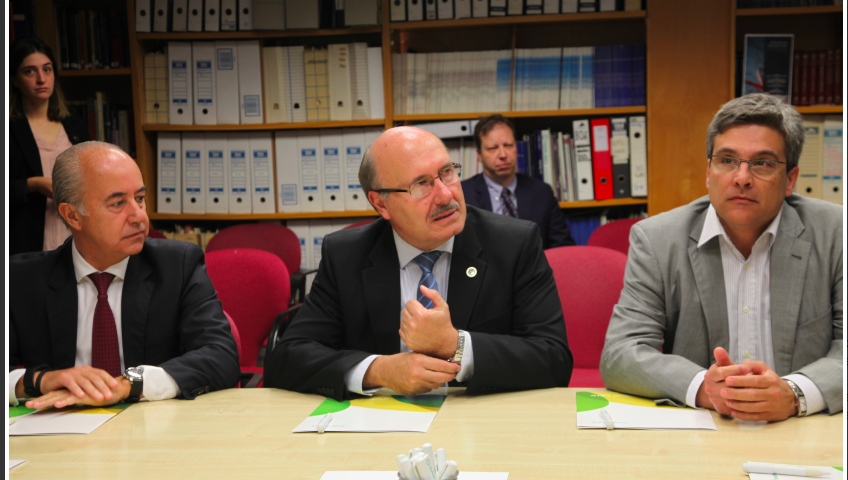The Director of the Institute of Astrophysics of the Canary Islands (IAC) Rafael Bolo, together with the principal investigator of the area of medical technology of the IACTec, and professor of the University of Las Palmas of Gran Canaria (ULPGC), Juan Ruiz Alzola, the head of the diagnostic service and endoluminal/endovascular Therapeutics of Hospiten, and Director of the Chair of Medical Technologies of the ULPGC, Manuel Maynar visited the facilities of the group Hospiten in Tenerife to check the advances of the projects of transfer of medical technology Implemented from the IAC, in collaboration with the health group, in the field of medical technology research. This project is financed by the European program INTERREG MAC and by the Cabildo of Tenerife, through the training program of IACTEC.
Among the main lines of activity of the IACTEC highlights the programs of MICRO-satellites, the program of large telescopes and those of medical technology, the latter are being developed through the project Interreg MACbioIDi, "Promoting the cohesion of the RUPs Macaronesian through a common ICT platform for Biomedical research – MACbioIDi ", which coordinates ULPGC through the vice-rectorate for internationalization and cooperation.
One of the projects in which the IACTEC is working focuses on biomedicine, one of the technological sectors with the greatest potential for growth. The IAC's experience in the precise detection of signals in the analysis of electromagnetic radiation and in the treatment of images is key in this field, and they are very useful in the diagnosis and prevention of diseases. The main lines of action are the design of medical use software, the development of capture and image processing technology, and non-invasive microwave therapies.
Diabetic Foot Monitoring
The first project of this program, the development of a clinical system for the monitoring of the diabetic foot, is already underway. MACbioIDi leverages the exceptional instrumental capabilities of the IAC to develop this line of medical technology to monitor prevalent patrologías by analyzing the natural radiation of the human body at different wavelengths.
 |
 |
 |
The IAC, ULPGC and Hospiten collaborate in a joint project whose main objective is to provide tools to help the awareness of diabetics about the need to monitor the state of their feet, facilitating the early detection of ulcers for Avoid amputations. Technology that will serve for public awareness and early treatment.
Two prototypes are currently being developed. The first prototype is based on an infrared sensor that allows to obtain measurements of surface temperature of the foot. The second prototype, on the other hand, is based on microwave technology and allows to obtain a temperature measurement of the tissues that are under the visible surface of the foot. Both systems provide complementary measures to assess possible diabetic foot injuries at an early stage of the disease.
In the current phase of the project the first prototype based on an infrared sensor is being validated. With this sensor you can get an image of the temperature of the feet, which emit naturally electromagnetic radiation in the range of thermal infrared that our eyes can not see but that however can be observed with infrared cameras. Using this system we can obtain an image with the temperature of the surface of the foot and detect problems that we are not able to see looking directly with the eyes or with a conventional camera. When diabetic foot ulcers begin to form, but their effects are not yet visible, there is a local temperature increase in the affected area that can be detected by this technology.
The first tests of the thermal infrared prototype with diabetic foot patients are currently being carried out. This stage of the project is carried out in collaboration with the Hospiten group, in whose facilities the validation of the prototype for evaluation of diabetic foot ulcers takes place.
IACTec of high value technological products
IACTEC is the technological and business Cooperation space of the Institute of Astrophysics of the Canary Islands (IAC), whose mission is to promote public-private collaboration, promoting the creation of quality employment and the generation of high value technological products. Added and high marketing potential, both at national and international level.
IACTEC facilitates an accessible and abundant environment in human, scientific, technological and financial resources: the ideal space for companies and institutions with R & D Vocation to collaborate developing new associations and innovative projects.
It is created as a key strategic environment for the development of talent and a dynamic and innovative productive fabric in the Canary Islands and Spain.
MACbioIDi Project
For its part, the MACBIOIDI project promotes the scientific, formative and business activity of global reach in the field of medical TICs, and it participates in it more than 31 partners from the Canary Islands, Madeira, Azores, Cape Verde, Mauritania, Senegal, Mozambique, Spain Peninsular and US. Its objective is to develop medical technology and training programs that can be used in the participating territories, paying attention to their social and business transfer.
MACbioIDi makes the Canary Islands an international node for medical technology applied to cooperation for development, a meeting point for scientific, academic, sanitary and business entities among all the countries of reference of the Macaronesia European. The Canary Islands is thus established as a bridge between developing countries of the macaronésico environment and the most advanced research and technology centers in the world.
The project comes to promote a great international collaboration that allows open technologies, universal and accessible in systems of medical-surgical simulation, offers unimaginable opportunities of improvement in the education, the health benefit, the Technological development, entrepreneurship and economic growth, Nucleado via La ULPGC.


